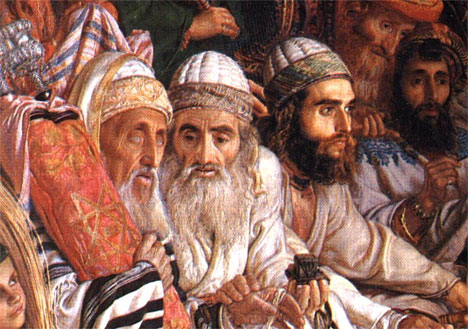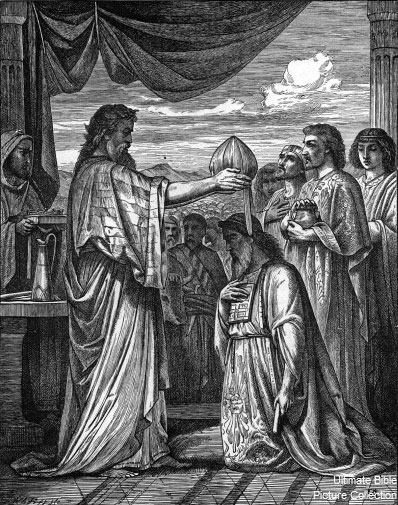Jul
5
2012
or The Undeserved Immunity of Devilish Talmudism

“For they bind heavy burdens, hard to bear, and lay them on men’s shoulders; but they themselves will not move them with one of their fingers.”
Matthew 23:4
One of the great benefits of understanding the “preteristic” nature of the New Testament is the way the many supposedly “generic” apostolic warnings in the epistles are suddenly grounded in their Jewish context. The destruction of the Temple barely gets a mention in any church today, yet when the letters of Paul, Peter, James and John are understood to be aimed at Jews outside the Church and Judaizers inside it, the New Testament doesn’t become less relevant to us, but more relevant.
Continue reading
1 comment | tags: AD70, Baptism, Federal Vision, Gnosticism, Luke, Martyrdom, Revelation, Talmud | posted in Biblical Theology, Ethics, Quotes, The Last Days
May
20
2009

Leaving Wilderness Behind
In Through New Eyes, James Jordan notes that the wilderness was Havilah, the place mentioned in Genesis 2 that was rich in raw materials. Israel stripped Egypt of her gold, then plundered the desolate places of hidden wealth. She came out of the desert with a High Priest clothed in gems, and a new generation of soldiers born of God’s threshing floor.
The manna began to fall just after the Hebrews’ victory over Pharaoh. As with Jacob, the Lord was faithful to provide for His chosen one. But perhaps, in covering the ground, there is also the idea of a firmament (this might sound strange to some readers, but I have found the concept is a frequent one). The wilderness is the place of the humble bread of priesthood, displayed in obedience to God. It was the next generation that would drink the wine of Canaan after obedience under Joshua.
A Memorial
The Lord commanded that some manna be put into the Ark as a memorial. Symbolising manna, the white stone is a memorial of faithful priesthood. Joshua’s crossing of the Jordan was memorialised by large, engraved, white stones.
Continue reading
Comments Off | tags: Ark of the Covenant, Atonement, bdellium, Cain, Crucifixion, Ezekiel, Haman, Havilah, Herod, High Priest, James Jordan, Table of Showbread, Talmud, Urim and Thummim, White stone, Zechariah | posted in Biblical Theology, The Last Days



























